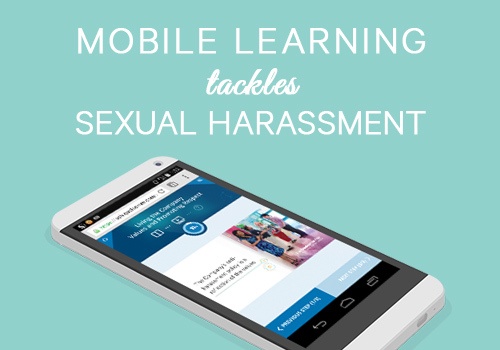Creating Sexual Harassment Compliance Training: 5 Ways To Achieve It
Sexual harassment scandals have dominated the news recently. Powerful men, from CEOs to Hollywood stars, are getting called out for imposing themselves on those they work with. It’s no wonder HR departments are taking a second look at their company policies and training.
The time for boring power points and cheesy videos is passed. Compliance training needs to reach beyond reciting company policy to help employees think about the issues involved, and discover how they can apply the principles to their daily activities. It needs to reflect a company culture of fairness and respect.
The key to creating a great sexual harassment compliance training is content that is clear, engaging, relevant to how your employees interact day to day and promote a safe dialogue. Here are 5 tips you can use in order to:
1. Make It Mandatory
Make sure each of your company’s employees—from recent hires to executives—complete the full sexual harassment compliance training program. It sends a message that all employees, regardless of the title, are expected to act in a way that is courteous and honorable. A lack of support from senior leaders sets a poor example and creates a negative impression of the training for the rest of the office.
2. Make It Relatable
Simply handing out an updated sexual harassment policy to read and memorize won’t do it. Today’s employees learn best through the use of relatable scenarios with clear objectives. Training should incorporate character-driven situations that portray how harassment policies correlate with your company’s values and your employee’s actual jobs, as well as point out the benefits of having a respectful work environment.
Most sexual harassment isn’t as cut and dry as the creepy boss demanding quid pro quo in the much-maligned 90s era harassment videos. It’s more likely to be a series of subtle comments, jokes, or gestures that lead to a hostile work environment [1]. It’s important that your employees recognize this kind of behavior and stop it before it leads to more serious events and allegations.
3. Make It About Behavior, Not Rules
If your employees go into the training prepared to be censured, they’ll close themselves off learning. If they go in prepared to get ideas on how to create a community where employees can work together with mutual respect and understanding, they can learn productive, collaborative ways to ensure the office is a safe and inviting environment.
Instead of focusing solely on a list of do’s and don’ts, give employees the opportunity to explore responses to situations they may face themselves, or observe with others. Include digital communications, social media channels, and interactions outside of the office in your discussion.
For the best engagement and retention, today’s employees [2] respond to training delivered in small learning units with interactive components. These activities should highlight realistic situations and demonstrate the importance of respect and civility in your company culture.
After your employees have explored the various dangers of harassment, tailor their training to specific areas of focus for improving your workplace environment.
4. Make It A Safe Space
Give your learners access to an anonymous forum to ask questions, get answers, and share experiences. A 2016 report from the Equal Employment Opportunity Commission [3] encouraged self-study as an important part of improving your company’s climate around sexual harassment. When employees feel their questions and concerns are important, they will take the training more seriously.
5. Make It Clear
It’s not just about presenting information to your employees and getting them back to work as quickly as possible, you need to give them tools to identify and report improper behavior down the road. Provide clear documentation outlining your sexual harassment policy, reporting and investigation procedures, and consequences for non-compliance.
Follow-up the training with a continuing dialog about working relationships. Provide a way for employees to give feedback and suggestions for improvement.
In today’s workplace environment, sexual harassment compliance training should have clear, decisive goals so that employees do not leave feeling confused and overwhelmed. Good training should conclude with employees gaining an increased awareness harassment in all forms and a knowledge of formal policies and reporting procedures. Instead of merely pointing out what to avoid, let your training reflect your company’s mission, values, and expectations. This will create a positive work environment where mutual respect and effective collaboration thrive.
References:
- Identifying and Preventing Harassment in Your Workplace.
- How to Effectively Train Millennials in the Workplace.
- U.S. Equal Employment Opportunity Commission.









